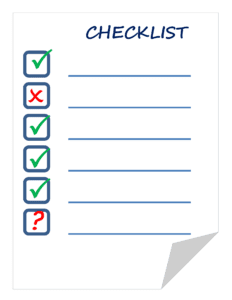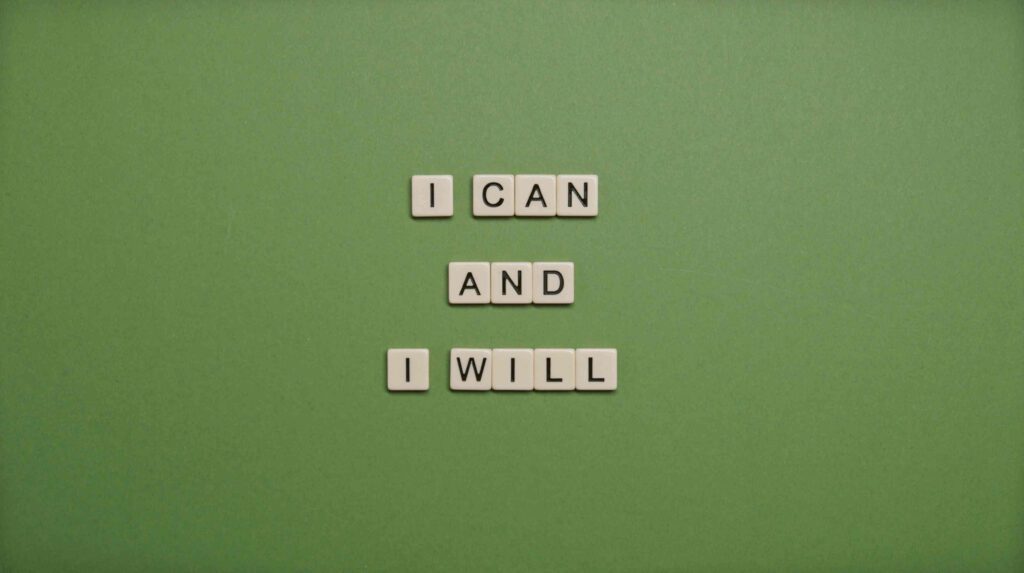Do you ever find yourself questioning your decisions and doubting your abilities? You’re not alone. Self-doubt is a common feeling that can hold you back from achieving your goals. But the good news is, there are things you can do to overcome self-doubt and build confidence.

Common signs of self-doubt
Self-doubt is something that many of us experience from time to time.
Here are 5 common signs of self-doubt:
1. Negative self-talk

This is when we constantly put ourselves down and think negatively about our skills, abilities, and worth.
2. Struggling to make decisions

Making decisions can be difficult if we are filled with self-doubt as it may seem like there is no right answer or solution.
3. Feelings of shame or guilt
These feelings can arise due to a lack of confidence in ourselves and how we interact with others.
4. Difficulty accepting compliments

Feeling uncomfortable or doubtful when someone compliments us can be a strong sign of self-doubt and low self-worth.
5. Fear of failure
Having a deep-seated fear that every situation will fail is an indication of low self-belief and confidence.
If you’re ready to start building your confidence and overcoming self-doubt, read on for practical advice that you can use today.
Acknowledge your self-doubt

Acknowledge self-doubt and understand that it is a normal part of life for all of us. Don’t try to pretend it isn’t there or ignore it, as that can often worsen self-doubt and make it more difficult to manage.
Be honest with yourself about what self-doubt is and how you feel when you’re struggling with it. By admitting self-doubt to yourself, you are one step closer to overcoming it.
Recognizing self-doubt can help foster self-awareness and self-confidence, enabling you to make a plan to manage it and adequately address your feelings to develop greater resilience and move past them.
Understand the origins of your self-doubt

Overcoming and addressing feelings of self-doubt isn’t easy, but it starts with understanding the source of those feelings. Is it based on past experiences or perhaps something else entirely?
It’s important to ask yourself these questions so that you can identify your core concerns to take meaningful action.
Experiences that can lead to chronic self-doubt include:
- Unsupportive family dynamics.
- Early childhood trauma.
- An abusive upbringing.
- Unmet emotional needs.
- Chronic feelings of insecurity.
Look at accessing resources and support that can help unlock those answers and give you the tools to address your doubts.
With the right guidance, you’ll be on the path to developing a stronger sense of self-confidence and faith in your abilities.
You are not your thoughts
When it comes to self-doubt, it’s important to remember that our thoughts don’t define who we are. We can observe our thoughts and feelings without judging ourselves or attaching any meaning to them.

It’s a process of allowing yourself to detach from your thoughts and recognize that they don’t always equal reality. By understanding how our minds work, we can start to realize that the majority of our thoughts don’t define us and become more accepting of ourselves.
Over time, this can help us cultivate a healthier relationship with ourselves and constructively address self-doubt.
Challenge your inner critic
Self-doubt can be incredibly debilitating and challenging to manage, but there are ways to challenge and keep your inner critic in check.

By consciously pausing and challenging your thoughts, you can start to recognise when your inner critic is making us feel worse and not better. This technique helps you become aware of when you’re being unnecessarily hard on yourself, as well as recognize the difference between helpful criticism and negative self-talk.
Additionally, talking positively to and about yourself every day can help build confidence and remind you of what you’re capable of achieving. Taking small steps toward overcoming self-doubt each day can make a world of difference in how you feel about yourself – soon enough, the inner critic won’t stand a chance!
Remember your successes

Writing down our successes, whether big or small, can be an effective way to combat self-doubt and build confidence. Keeping a journal of your accomplishments allows you to look back and remember all the times you’ve achieved something, regardless of how insignificant it may seem. This serves as a reminder, and real evidence, that you are capable of achieving anything you set your mind to.
Additionally, looking back at past successes can give you a sense of pride and recognition for how far you’ve come. With this insight, you can confidently move forward with new projects and be better equipped to manage any doubts or insecurities that come up along the way.
Talk to someone you trust
Self-doubt can be a paralyzing emotion, holding you back from reaching your full potential and preventing you from achieving what your heart desires. The best remedy for this is to talk it out – ideally with someone you trust.

Opening up to another person will bring clarity and perspective to the issue. Not only could they have useful advice and insights, but also having an outside voice of reason helps to validate how you are feeling.
And when self-doubt inevitably rears its ugly head again, you’ll know how to go about tackling it head-on so you can continue on your path of success and fulfilled dreams without any hidden hindrance.
Plan to overcome self-doubt
Having self-doubt can be a difficult hurdle to overcome, but if you have a plan that features achievable goals then you can start to tackle this positively and constructively.

As part of the plan to address and beat your self-doubt, why not try setting small milestones? Picking measurable objectives that are easily attainable allows you to compliment each success with rewards or further calculations so that your confidence grows as your accomplishments accumulate.
So, spend some time now writing down what your targets may look like and make sure they’re specifically tailored to help you build up competence. Perseverance is the key to success and with the right approach, capably managing those feelings of inadequacy is achievable.
Take action and stick to your plan
Taking real, tangible action towards achieving something is invaluable when it comes to overcoming self-doubt. Though it may seem small, each step you take in this direction will be critical in helping you break the cycle of fear and negativity.

When facing daunting tasks or decisions, breaking down the task into smaller parts can not only make them easier to handle but will also help build your confidence as you tick them off one by one.
Consistency is key – focus on consistent effort over big leaps and strides! Doing so will bring you nearer to understanding the power of self-belief and lasting success.
Commit to building resilience
Building resilience is a powerful tool for managing self-doubt and building confidence. This involves the practice of accepting challenges, setbacks, and failure with grace and determination.

Committing to being resilient means not letting anything stand in the way of your goals or dreams. When you make an effort to stay positive and keep going no matter what, that’s when you slowly start building up your mental strength and resilience which can be a great buffer against negative self-talk.
It also serves as a healthy reminder that moods change and things will probably get better soon if you just keep at it. Ultimately, resilience is key to pushing through any doubt or insecurity that comes up on your journey towards happiness and contentment.
While self-doubt is something everyone experiences from time to time, it can be crippling if left unchecked. The good news is that there are practical things you can do to overcome self-doubt and live a more confident life.
And remember, change doesn’t happen overnight – but small steps done consistently will get you there eventually. So don’t give up and keep moving forward!